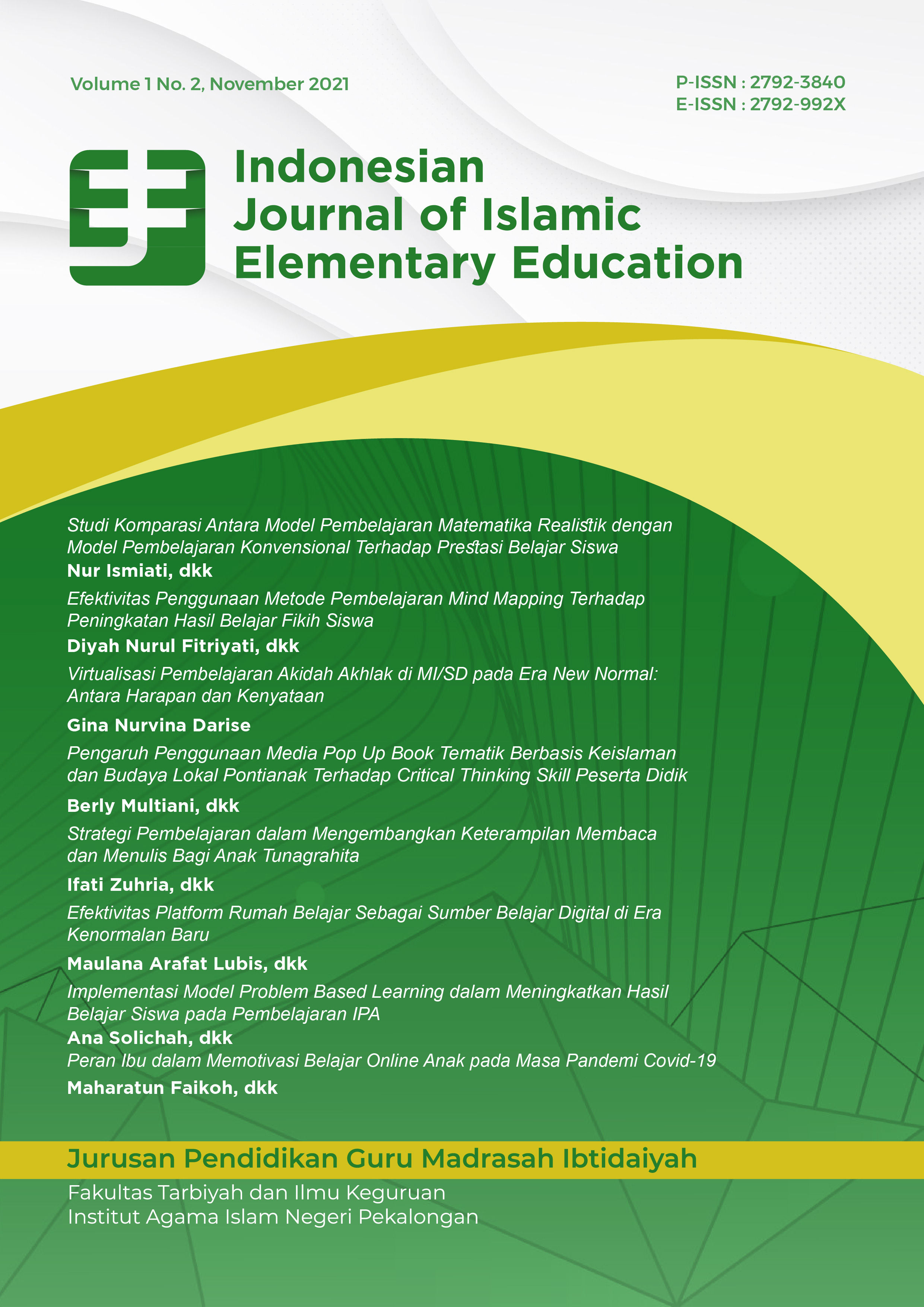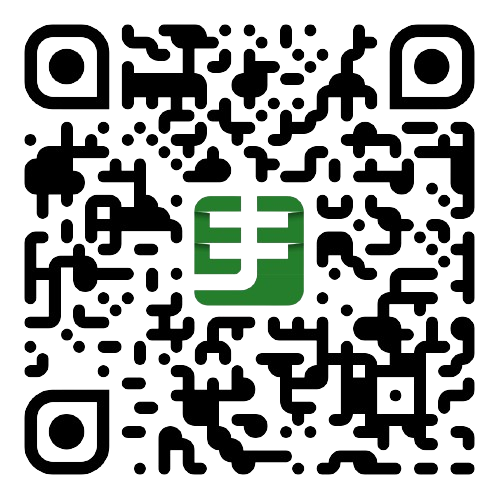Efektivitas Penggunaan Metode Pembelajaran Mind Mapping terhadap Peningkatan Hasil Belajar Fikih Siswa
DOI:
https://doi.org/10.28918/ijiee.v1i2.4243Keywords:
Fiqh, Mind mapping method, Learning outcomeAbstract
One method that can invite students to be active at the same time according to the characteristics of theFiqh material is the Mind Mapping learning method. This study aims to: 1. Determine whether there are differences in fiqh learning outcomes between students who are taught using mind mapping methods and conventional methods. 2. Testing the effectiveness of using the mind mapping method in improving fiqh learning outcomes for fourth grade students. This research is intended to provide educational insights (theoretical), as well as learning reference materials for related parties (practical). This study uses a quantitative approach with a quasi-experimental type. The data collection technique is a written test. Written tests were in the form of pre-test and post-test, which were then analyzed by independent sample t-test and N-Gain test. From the independent sample t test shows that sig. 2 tailed is 0.000 or <0.05.The average post-test score for the experimental class was 90.00 and the control class 80.68. From the N-Gain test, it is known that the average N-Gain value in the experimental class is 73.2% (high effectiveness category), while for the control class it is 45.5% (medium effectiveness category). So it can be concluded that the application of the mind mapping method is effective in improving Fiqh learning outcomes for fourth grade students of MI Gondang.
References
Bobby De Porter, M. H. (2003). Quantum Learning, Membiasakan Belajar yang Nyaman dan Menyenangkan. Bandung: Kaifa.
Buzan, T. (2009). Buku Pintar Mind Mapp. Jakarta: Gramedia Pustaka Utama.
Carse HR, S. (2018). Metodologi Penelitian Kesehatan dan Pendidikan. Yogyakarta: Penebar Media Pustaka.
Djiwandono, P. I. (2015). Meneliti itu Tidak Sulit: Metodologi Penelitian Sosial dan Pendidikan Bahasa. Yogyakarta: Deepublish.
Kurniawan, A. (2009). Belajar Mudah SPSS untuk Pemula. Yogyakarta: MediaKom.
Munjin, A. (2009). Metode dan Teknik Pembelajaran PAI. Bandung: PT Refika Aditama.
Pratiwi Oktaviani, H. P. (2017). Pengembangan Multimedia Interaktif Bervisi SETS sebagai Alat Bantu Model Problem Based Learning (PBL) dalam Pembelajaran IPA di SMP untuk Meningkatkan Kemampuan Berpikir Kritis dan Keterampilan Sosial Peserta Didik. Pancasakti Science Education Journal PSEJ, 125.
Shobirin, M. (2016). Konsep dan Implementasi Kurikulum 2013 di Sekolah Dasar. Yogyakarta: CV Budi Utama.
Susanto, A. (2013). Teori Belajar dan Pembelajaran di Sekolah Dasar. Jakarta: Kencana.
Swadarma, D. (2013). Penerapan Mind Mapping dalam Kurikulum Pembelajaran. Jakarta: PT Elex Media Komputindo.
Syah, M. (2006). Psikologi Belajar. Jakarta: PT Raja Grafindo Persada.
Yusuf, B. B. (2017). Konsep dan Indikator Pembelajaran Efektif. Jurnal Kajian Pembelajaran dan Keilmuan, 15, 16.
Downloads
Published
Issue
Section
License
Copyright (c) 2021 Diyah Fitriyati, Umum Budi Karyanto

This work is licensed under a Creative Commons Attribution 4.0 International License.
You are free to:
Share — copy and redistribute the material in any medium or format for any purpose, even commercially.
Adapt — remix, transform, and build upon the material for any purpose, even commercially.
The licensor cannot revoke these freedoms as long as you follow the license terms.
Under the following terms:
Attribution — You must give appropriate credit , provide a link to the license, and indicate if changes were made . You may do so in any reasonable manner, but not in any way that suggests the licensor endorses you or your use.
No additional restrictions — You may not apply legal terms or technological measures that legally restrict others from doing anything the license permits.
Notices:
You do not have to comply with the license for elements of the material in the public domain or where your use is permitted by an applicable exception or limitation .
No warranties are given. The license may not give you all of the permissions necessary for your intended use. For example, other rights such as publicity, privacy, or moral rights may limit how you use the material.












